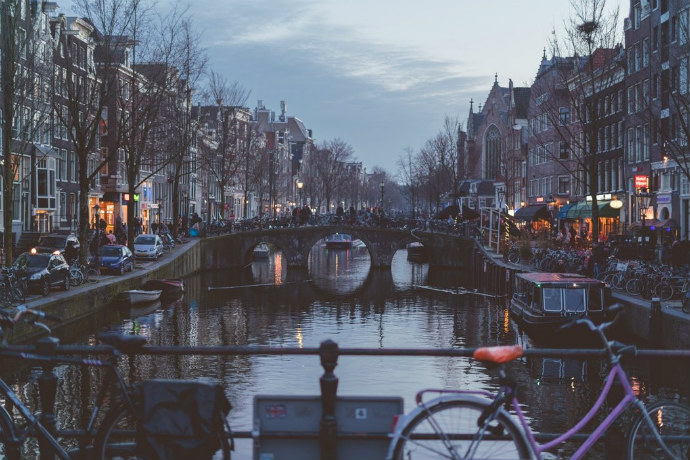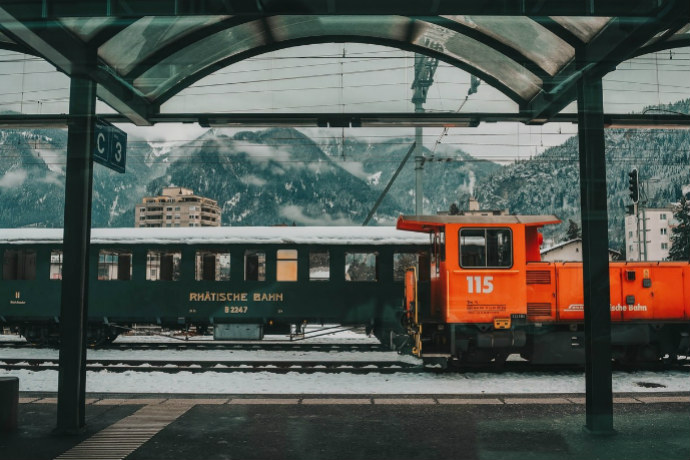9 Ways to Survive a European Winter
Winter is a fantastic time to visit Europe! As the temperature drops, the cost of flights, accommodation and activities do too, meaning it's a great time to make the most out of this off-peak season. However, visiting Europe during its coldest season for the first time can be challenging for young Aussies who are used to a hot summer, that's why we've provided some of our top tips for you to survive your European winter holiday, and be a savvy tourist!
1. Essentials/what to bring
When considering what essentials to bring on your holiday, think practical and useful. These items include a smart travel card, battery packs and cash. Smart travel cards can include those that offer fee-free travel for a smarter shopping option. Battery packs are also a great option to avoid any unexpected outages on your phone or laptop. Work out how much foreign cash you may need prior to departing and try to shop around for the best exchange rates available.
2. Insurance
Having travel insurance when going overseas is essential for a safe travelling experience. Travel insurance provides protection against travel risks, including delays, cancellations and any emergencies.
There are many travel insurance options to consider to suit your needs, so make sure to research and purchase the insurance prior to departure.
3. Keeping warm in the winter
Europe can get extremely cold during the winter season. Remember to stock up on your winter woolies to keep you warm! Survival essentials include thermals, beanies, gloves and waterproof boots. These items will prove beneficial for you over the cold season, as exploring Europe in winter can be chilly without having the proper gear.
4. Be prepared for snow, and lots of it!
There is nothing worse than showing up to your destination to find out your weather has changed drastically. Being prepared for all types of weather on your holiday is essential for surviving a European winter. Bring some warmer clothes, along with your essential wet weather gear for your holiday away.
5. Going on a tour in winter

If you choose to go on a tour during your winter holiday, consider contacting your tour company prior to ensure your travels are in motion. Winter can disturb certain roads and routes for travel companies at this time of the year, so remember to keep an open mind when travelling as destinations and stop-overs can be missed due to extreme weather conditions.
6. Driving through Europe in winter
Driving through Europe in winter can prove challenging. As roads can be covered in thick blankets of snow, it can make for a dangerous driving experience. Consider planning your time away in accordance with the expected weather conditions.
7. Travelling by train in winter

Travelling by train in winter may also require careful planning. Due to unexpected and unplanned weather, sometimes travelling by train around Europe can be restrictive. We advise researching your train line prior to departure to determine if the train is running on time or at all. Having back up travel options, such as hire cars, buses or flights can also be a lifesaver if train lines are not operating.
8. Indoor places to visit
Depending on the time of year you are travelling, there are various indoor activities to experience as a young traveller. If the Christmas season has fallen within your travels, there are various Christmas markets to visit. However, if you are travelling during the winter months and need more options for indoor activities, consider visiting cafes, bars, lunch spots, theatres, galleries, museums or even churches. There are endless indoor options when travelling to Europe. Our popular choices include Aquaworld Water Park in Budapest, discover the catacombs in Paris or even consider visiting the Van Gogh Museum in Amsterdam! There's something for everyone!
9. Hotels
When booking hotels for your winter holiday away, heaters are an absolute must! The last thing you need is to have a freezing cold holiday due to your hotel room lacking essential facilities. Sometimes heating does cost extra, but it makes a difference on a cold winter's night. Other hotel add-ons to consider including are a bath, a stove, or kitchen items such as kettles and microwaves to better your holiday experience.
For more of our popular tips and tricks for a winter holiday away, consider reading our blogs on How to Discover Your Perfect Winter Wonderland and 5 Tips For Travelling Around Europe in Winter.